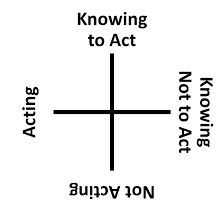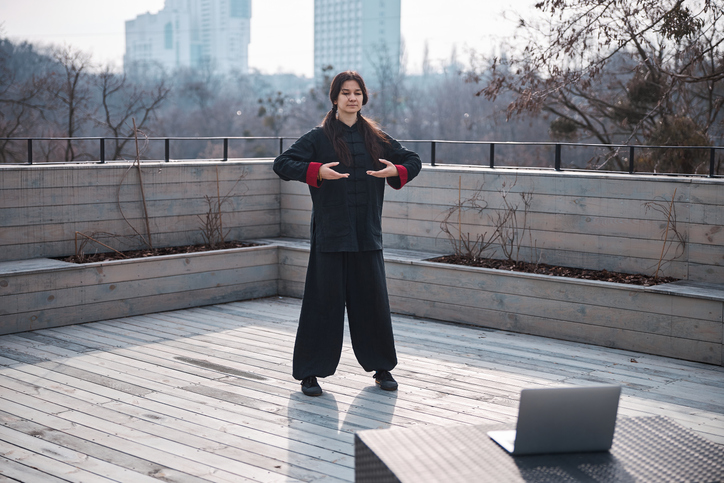Despite humanity’s technological developments and intention to progress, we’re still utterly ruled by nature. Human effort has its limitations and is often in conjunction with nature. Most of them believe it is hard work that is needed to succeed. Although many succeed, they are not aware that they find it hard to achieve because they resist the natural flow of the universe. To do anything, you should do it with effortless action with the right balance and an equipoised approach. Wu Wei’s principle is the key to natural harmony and balance. It explains this contradiction with more insights.
The reputed author of the Tao Te Ching, Lao Tzu, stated that the planet governs itself. It doesn’t need our intervention. As Lao Tzu wrote, “When you attain non-action, nothing is left undone.” This philosophy elucidates the essential understanding of the paradoxical concept of “Wu Wei.” But once we deeply dwell or search for a definition of wu-wei, we discover that there isn’t one fixed meaning, and it’s always puzzling!. However, it’s no surprise to say the Wu Wei principle is the key to natural harmony and balance in life!
The real essence of Wu Wei is best explained:
Some translate wu-wei as ‘non-action,’ or ‘doing nothing;’ few as ‘actionless action,’ or also as effortless action.’ Taoism offers several core principles on how wu-Wei can enhance our relationship with nature. The way this ancient art of “letting things happen” doesn’t necessarily make us passive, ignorant bystanders but can enhance how we act, resulting in better outcomes. It doesn’t mean you shouldn’t act but minimize actions in such a way that you are not influenced by negative emotions or act under the influence of pressurized situations to make decisions.
You don’t have to overdo things out of desperation and just feel bad that it’s your fate or probably feel too positive by deluding yourself into thinking positively that everything happens for a good cause. Indeed, it’s true, but by following wu-wei, intuition hints you to wait and take corrective action in such a way that you get the best possible result with minimal action. This mindset helps you to take the right step at the right time rather than allowing you to do things twofold and arrive at a correct result after quite a lot of wrong acts.
This philosophy also explains that our best performance comes out when we act without deliberation. It means if we are not truthful to ourselves, our actions will reveal themselves to make people perceive that we are dishonest.
a) My experience with applying Wu Wei in life
Being a keen explorer of the inner workings of nature and some experience in spirituality, I observed that many books haven’t arrived practically at the point on how actionless action brings harmony. I want to address the most pressing question in everyone’s mind: how are we going to get things without action? How do we know when to remain silent and take action? Through this write-up, I will provide the true essence of this ancient Taoist philosophy with a more logical and pragmatic approach based on my observation.
I got quite fascinated by this knowledge and tried applying it in most tense, agitated, sad situations, and most importantly, when you have to make crucial decisions or are about to jump to conclusions. I have been applying this principle for three years consistently and have seen the most impressive results in all areas of life. I observed that effortless action is like taking action or making choices to get something by being in nature’s flow in a balanced way.
For instance, when I was in desperate need of money recently, I just prepared myself by being in the zone by eliminating all kinds of attachments associated with money, any sort of desperation, or the anxiety of knowing on which day I’m going to receive it. To keep it simple, just acting with an empty/thoughtless mind by being in centeredness always worked no matter how worse the situation was. I luckily got money later from another source. If you feel attached that a particular person hasn’t given you money, this may destroy your abundance mindset, inflict pain, cause suffering, and eventually affect your health in the long run. Concurrently, don’t give away the control to others to skip giving what you deserve to get; rather, act occasionally with a controlled mind until you get what you want. If you still don’t receive it, let it go and surrender it to the universe. Soon it will manifest in other forms coming from some unexpected source. This happens because you pave the way to let the universe work for you by trusting the process.
b) Follow the universal laws:
It isn’t so easy to achieve a balanced state, as many people tend to react immediately to bad situations and attract more similar situations. This occurs due to their habitual thinking patterns arising from their unconscious and subconscious minds. To be in tune with nature, we should follow universal laws such as:
- 1. The Law of Divine Oneness. Everyone and everything is connected in the world we live in
- 2: The Law of Energy or Vibration
- 3. The Law of Gender
- 4: The Law of Correspondence
- 5: The Law of Cause and Effect
- 6: The Law of Compensation
- 7: The Law of Attraction
- 8: The law of inspired action
- 9: The Law of Relativity
- 10: The Law of Polarity.
- 11: The law of perpetual motion
- 12: The law of giving and receiving
- 13: The law of rhythm
Also, being responsive and giving time to yourself before reacting help you to remain still. Meditation will greatly assist in maintaining harmony, effortlessness, and inner balance. It thereby guides you to take corrective and preventive action. It’s far better than making hasty decisions and regretting them later or blaming the consequences on others. Lao Tzu also said, “To the mind that is still, the whole universe surrenders.”. Even this forms the core concept of wu-wei.




